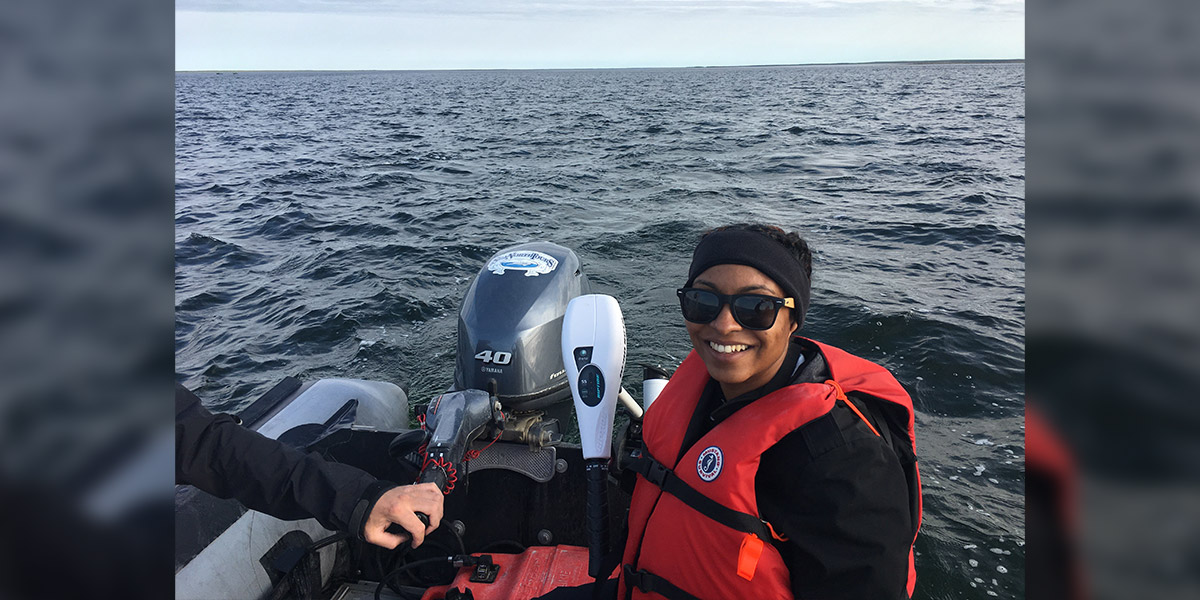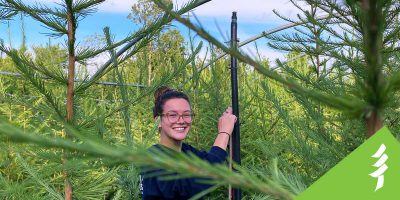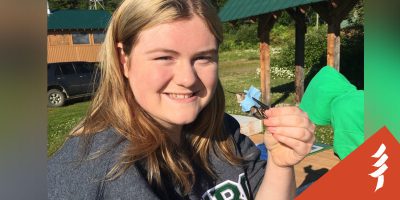GREEN JOB YOUTH SPOTLIGHTS
The Arctic is Calling – A PLT Canada Green Jobs Youth SpotlightNovember 07, 2019 Danielle Ince out in the field for a four-week expedition in Churchill, Manitoba, for beluga whale research. “I felt like the universe was speaking to me,” Danielle Ince laughs. A Green Jobs youth working as a Beluga Whale Research Associate with the Assiniboine Park Zoo in Churchill, Manitoba, you can tell she is over the moon to be doing research on one of Canada’s most iconic mammals, the beluga whale. “I’ve always loved animals, and while looking for a master’s program, I knew I wanted to focus on that. When I found this program, I felt like the universe was speaking to me.” Danielle also gratefully recognizes her mother as the reason she followed this path. “I was fortunate to grow up in the Caribbean,” she reflects. “My mother was very outdoorsy and instilled that curiosity and love for nature in me at a young age. She taught me how to camp. She taught me my first scientific name and what it meant. As I grew older, I noticed that the ecosystems and species that I cared about were starting to degrade and become endangered.” This was the catalyst that led Danielle to pursue a degree in life sciences, with a specialization in marine biology. After getting admitted to the University of Manitoba Masters of Natural Resource Management Program, the next step was finding a summer internship that could meet her passion for research and wildlife. Once again, it felt like the stars aligned when she discovered an opportunity to do research through a PLT Canada-funded position with the Assiniboine Park Zoo, one of the many Green Jobs employers within the Canadian Parks Council and Sustainable Forestry Initiative networks. “The Assiniboine Park is more than just a zoo and has lots of conservation activities. There are actually no belugas at the zoo. The research we are doing is to help animals in the wild,” Danielle shares. The position will take Danielle on multiple four-week expedition trips to Churchill, Manitoba. Her work will help collect information on beluga whales, in a non-invasive form as they are not being tagged. Instead, the scientists rely on cameras on the bottom of zodiac boats to capture images, which are then uploaded on Zooniverse.org. The project is part of the Citizen Scientist Project where people around the world help the researchers sort through thousands of images. “It’s a fantastic, massive project that I’m so happy to be part of,” she says. “People help us by classifying beluga whales and identify characteristics such as their age or gender.” “We still don’t know much about beluga whales, including those in Churchill. The more we know about an animal, the better we can manage it and conserve it,” she noted. “In the context of climate change, we know that the arctic system is changing, and we need to know how beluga whales are going to be impacted by the changes in temperature and ecosystem.” Danielle encourages other youth to consider a path in ecosystem and wildlife management and offers a tip for youth who may not come from a formal educational background but are interested in the topic. “It can be daunting! But you just have to start. Start taking a biology class. Start volunteering. There are so many opportunities to become involved.” Danielle’s passion for research and wildlife management is literally taking her places and contributing to important work in Canada’s Arctic. Where will her efforts lead her next? |






